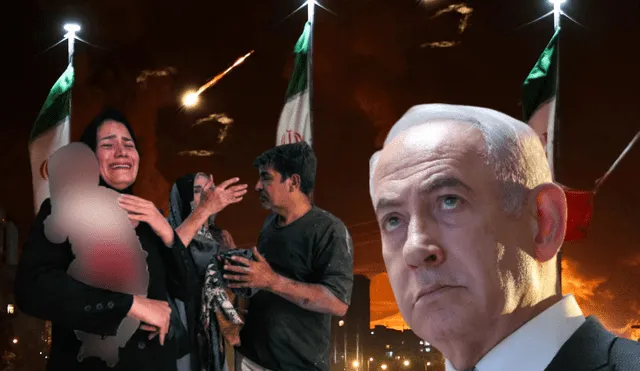Israel-Iran conflict intensifies as airstrikes escalate and death toll rises on both sides
Over 220 killed in Iran, 24 in Israel as strikes continue; United States distances itself from Netanyahu’s offensive.

The war between Israel and Iran is now in its fourth day, with no signs of cooling down. Air strikes and retaliatory missile strikes have left hundreds dead, with fears of wider instability in the region. The operation began on Friday when Israeli forces launched a surprise aerial assault against key military and nuclear facilities throughout Iran.
Since then, Iranian state media reports a minimum of 224 dead and Iranian retaliation strikes have killed 24 in Israel. The situation has drawn international attention, with President Donald Trump's administration trying to stay neutral while providing limited material support to its ally.
Escalating attacks and military objectives
On Monday, Israel carried out additional strikes on missile facilities in Iran, with an enhanced response from Iran's Islamic Revolutionary Guard. Iran replied with missiles characterized as "more powerful and intense than ever before." The Israeli Defense Forces claimed to have established complete air superiority over Iran's capital and compared the current battlefield to previous operations in Gaza and Lebanon.
Israeli officials claimed the mission is about crippling Iran's nuclear program and supply of missiles. Military sources confirmed that nine Iranian nuclear scientists had been killed along with the top two generals of Tehran's military command. The International Atomic Energy Agency stated that despite the significant damage, facilities like Natanz, Isfahan and Fordo had not experienced significant radioactive leaks.
Political stakes and intelligence operations
The conflict is increasing pressure on President Trump, who had been in favor of diplomacy with Iran prior to the attacks. While the U.S. has not engaged directly, officials confirmed that the U.S. intelligence and air defense systems have quietly aided Israeli actions. Nevertheless, Trump declined an Israeli proposal to assassinate Iran’s Supreme Leader Ayatollah Khamenei.
According to Israeli officials, the purpose is not only to destroy physical assets, but to influence Iran's command chain. Early tactical successes have been achieved, however, military sources noted the resiliency of Iran's dispersed, and deeply embedded, nuclear network, and cautioned that the campaign is not nearly over.













